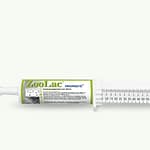Cause of vomiting can vary widely, and treatment depends on the underlying issue. However, there are some general steps you can take to address the problem and help your dog feel better:
1. Fasting
- Why: Allowing the stomach to rest is often the first step in managing vomiting. This gives your dog’s digestive system time to recover.
- How: Typically, it’s recommended to withhold food for 12–24 hours, but always check with your vet, especially if your dog is a puppy, senior, or has other health issues. Water should be available, but give small amounts at a time.
2. Introduce Bland Diet
- Why: After the fasting period, a bland diet can help soothe the stomach.
- What to feed: Common options are boiled chicken (no skin, no bones) and plain white rice, or boiled ground turkey and sweet potatoes. Gradually reintroduce your dog’s regular food after they’ve kept the bland food down for 24–48 hours.
3. Hydration
- Why: Vomiting can lead to dehydration, so it’s important to encourage your dog to drink small amounts of water frequently. Dehydration can worsen their condition.
- How: Offer ice cubes or small amounts of water every 30 minutes to an hour. If your dog isn’t drinking, you may need to encourage hydration with electrolyte solutions designed for pets or ask your vet about subcutaneous fluids.
4. Anti-nausea Medications
- Why: If your dog’s vomiting is persistent or severe, a vet may prescribe anti-nausea medications such as Maropitant (Cerenia) or metoclopramide to stop the vomiting and reduce discomfort.
- How: Always consult with a veterinarian before giving your dog any medications.
5. Address the Underlying Cause
- Why: Vomiting can be a symptom of various issues, such as:
- Dietary indiscretion (e.g., eating something they shouldn’t have)
- Infections (bacterial, viral, or parasitic)
- Food allergies or intolerances
- Gastric upset (e.g., gastritis)
- Ingestion of toxins or foreign objects
- Pancreatitis or other gastrointestinal conditions
- What to do: If the vomiting continues or is accompanied by other signs like lethargy, diarrhea, blood in vomit, or a decreased appetite, it’s important to seek veterinary care.
6. When to Seek Veterinary Help
- If your dog is vomiting frequently (more than once or twice a day), or if the vomiting persists for more than 24–48 hours.
- If your dog shows other signs like fever, lethargy, blood in vomit, diarrhea, or severe abdominal pain.
- If your dog is very young, very old, or has other underlying health issues, always consult a vet.
Additional Tips:
- Avoid giving human medications to your dog unless explicitly directed by your vet. Many common human drugs, like acetaminophen or ibuprofen, are toxic to dogs.
- Prevent future vomiting by feeding your dog smaller, more frequent meals, and keep them from eating things they shouldn’t (e.g., garbage, toxic plants, or foreign objects).
If vomiting persists or worsens, always seek veterinary care to rule out serious conditions. A vet may recommend diagnostic tests like blood work, X-rays, or an ultrasound to identify the problem.
medications that are commonly prescribed by veterinarians to help control vomiting in dogs:
1. Anti-nausea Medications
These are typically used to control vomiting and help your dog feel more comfortable.
- Maropitant (Cerenia)
- What it is: A prescription medication specifically designed to treat nausea and vomiting in dogs.
- How it works: It blocks signals in the brain that trigger vomiting.
- When used: Often prescribed for dogs experiencing acute vomiting, whether from motion sickness, infections, or other causes. It’s available in both injectable and oral forms.
- Note: This medication should only be given under veterinary guidance.
- Metoclopramide (Reglan)
- What it is: A medication that helps improve stomach motility and prevent vomiting.
- How it works: It helps move food through the stomach more quickly and can also reduce nausea.
- When used: It’s often prescribed when vomiting is related to gastrointestinal issues or delayed stomach emptying.
- Note: It is typically given orally or as an injectable medication by your vet.
2. Antacids / Gastroprotectants
If vomiting is related to acid reflux, gastritis, or ulcers, your vet might recommend a medication to reduce stomach acid and protect the stomach lining.
- Famotidine (Pepcid AC) or Ranitidine (Zantac)
- What they are: Both are H2 blockers that reduce stomach acid production.
- How they work: They help prevent irritation in the stomach and can reduce nausea caused by acid.
- When used: If vomiting is due to acid reflux, ulcers, or gastritis, your vet may recommend these.
- Note: Always check with your vet on the proper dosage.
- Sucralfate (Carafate)
- What it is: A medication that forms a protective coating over the stomach lining to heal ulcers and prevent further damage.
- When used: It’s often used for treating gastric ulcers or severe gastritis that may be contributing to vomiting.
- Note: Sucralfate is typically given 1–2 hours before or after food and may need to be given multiple times a day.
3. Probiotics
- What they are: Probiotics help restore healthy gut bacteria and support the digestive system.
- When used: If vomiting is related to gastrointestinal upset, such as diarrhea, or after antibiotic use, your vet may suggest probiotics to help balance your dog’s gut flora.
- Popular brands: FortiFlora, Proviable, and VetriScience Probiotic.
4. Antibiotics or Anthelmintics
If your vet suspects an infection (like a bacterial infection or parasitic infestation), they may prescribe medications like:
- Antibiotics (e.g., Metronidazole) if an intestinal infection is suspected.
- Deworming medications if parasitic worms (like roundworms, hookworms, or giardia) are causing the vomiting.
Important Considerations:
- Never give human medications (like Pepto-Bismol, aspirin, or ibuprofen) to your dog, as they can be toxic.
- Consult with a vet before giving any medication, especially if you’re not sure of the cause of vomiting. Your vet will determine the best medication based on your dog’s specific symptoms and health status.
When to Seek Help:
If your dog is vomiting frequently, has additional symptoms (like lethargy, diarrhea, or blood in the vomit), or if the vomiting continues for more than 24–48 hours, it’s important to consult a veterinarian. The vet may perform diagnostics such as blood tests, X-rays, or ultrasound to identify the root cause and choose the appropriate medication.
If you’re concerned about your dog’s vomiting or just want to explore treatment options, don’t hesitate to reach out to your vet for advice!
My magic formula to treat vomiting in dogs (vets only)

Dr. Suranjan Sarkar is a veterinarian and also a writer and editor for both print and digital with a love for travel, animal, and architecture. Much of his writing has focused on human and animal health and welfare. A life-long pet owner, His two favorite canine quotes are, “Be the kind of person your dog thinks you are,” and “Dogs communicate their feelings honestly and directly. There’s no hidden agenda or manipulation.”











Pingback: can we give parle g to dogs? - Pluto Pet Clinics